‘The families live this every day’: Thirty years on, the Britons who died in the Waco siege
The 1993 Texas raid that led to the deaths of 86 people shocked the world. Less well known is that 23 British people were among the dead. James Rampton speaks to families, survivors and the maker of a new documentary telling their story

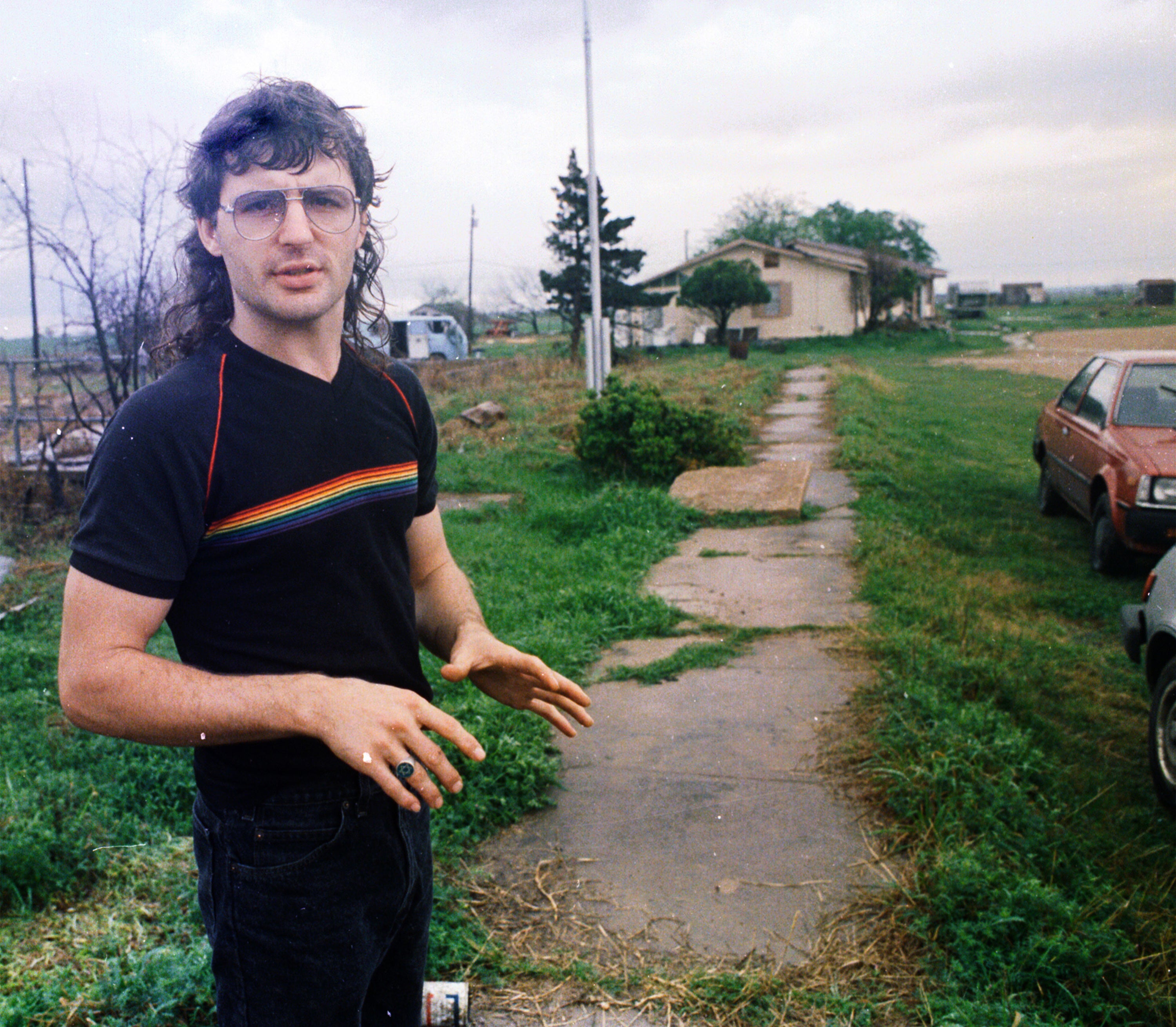
Gail Monbelly is wiping away her tears with a handkerchief.
She is recalling the shocking moment in 1993 when the world looked on in horror as flames from an apocalyptic fire ripped through the compound at the Waco siege, during which Gail’s 31-year-old sister Bernadette lost her life.
Monbelly remembers: “I had come home from work and the phone rang. My mum was on the other end of the phone, and she said, ‘There’s been a fire’. I said, ‘What fire?’, and my mum said, ‘Just put the TV on.’ And she hung up on me.
“It was a surreal experience. The thought of knowing that my sister would never come back. It was the first time I heard my dad cry out in pain.”
That was not the end of Gail’s agony, however. “Bernadette’s remains were found just behind the front door of the compound,” she continues. “I went to the funeral home, and when I said I’d like to pick out a dress for my sister, the funeral director put her hand on my hand and said, ‘Gail, in this case that won’t be necessary’.”
Thirty years on, the memory of that cataclysmic event at the Mount Carmel Center near Waco in Texas still haunts Gail. “Some days it’s difficult to accept that she’s not around. I’ve been robbed of a sister, my mum and dad have been robbed of a daughter, and we’re the poorer for it.”
A former training supervisor in a bank, Bernadette was one of 23 British people who perished at Waco. After a 51-day standoff, the longest-running non-military siege in US history, law enforcement agents used tanks, armoured vehicles and CS gas to attack the heavily fortified complex run by the messianic Branch Davidian sect leader David Koresh.

The raid led to the deaths of four federal agents and 82 Branch Davidians, including 28 children and Koresh himself. Nearly a third of the people who lost their lives at Waco were from the UK. Only three Britons survived that dreadful day.
These British members of the cult are the forgotten victims of that appalling and controversial disaster. Just why have the deceased who hailed from these shores been so woefully neglected?
Claire Savage, the producer of Waco Untold: The British Stories, a new ITVX documentary on the subject, believes that the victims from the UK have been ignored because people here felt they were part of some deranged movement. “Back then, I think people heard the word ‘cult’ and just automatically assumed that all of them were a bunch of crazy people, which wasn’t the case.”
He was able to bring these people on board by tapping into what they wanted to hear. By setting himself as a messiah figure, he was providing them with something they wanted to believe in
Also, the story didn’t receive as much attention in this country as “we weren’t living in the same global news village that we are today and the internet wasn’t around”.
Another reason why the UK victims did not get the coverage they deserved was because the British government appeared to keep their families in the dark.
Elaine Sellors, whose brother Cliff had followed Koresh to Waco, says: “We tried to ask the authorities if they could find out and nothing happened. We just didn’t get any help or any response at all. And I think we just felt totally helpless.”
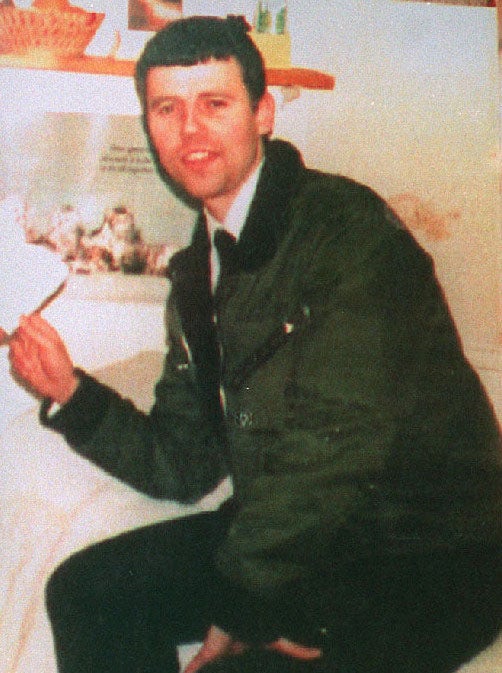
With Waco Untold: The British Stories now available on ITVX, Savage considers why that might have been the case. “It’s obviously speculation, but because of the close relationship between the British government and the US administration at that time, maybe they didn’t want to do anything that would muddy the waters.”
The son of a 14-year-old mother and sexually abused as a child, Koresh was born Vernon Howell. After a trip to Jerusalem in 1985, he became convinced he was a saviour. He changed his name to David Koresh after two biblical leaders who saved their people from oppression.
Styling himself as a prophet, he believed the Psalms of David were all about him. Koresh claimed that God had given him a purpose – freeing his people from the yoke of tyranny, bringing about an apocalyptic end to the world and ushering in the Second Coming of Jesus Christ.
After reportedly embarking on a sexual relationship with Lois Roden, the then head of the Branch Davidian cult in Waco, Koresh ousted her heir apparent, her son George, and took over the leadership.
His connection with this country took root in 1988 when he came here to recruit new members. Koresh concentrated on Newbold College, a Seventh-day Adventist institution in Berkshire.
Although he was not allowed to hold meetings at the college, he was a charismatic orator. He easily intoxicated susceptible young people and converted them into dedicated followers. Marc Breault, who was Koresh’s second in command between 1986 and 1988, recollects: “It was exciting because we were going to shake up the world.”
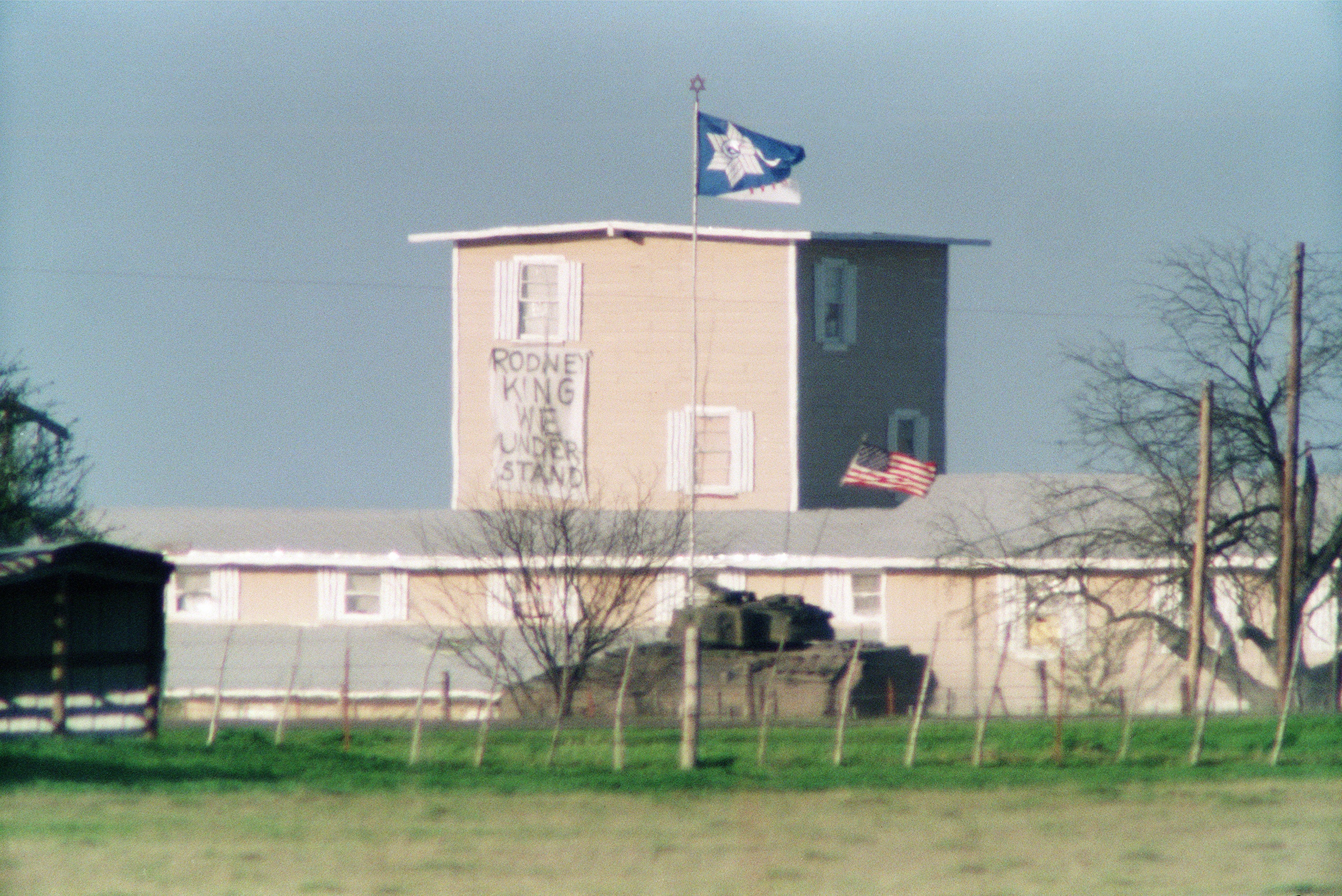
Savage outlines how Koresh succeeded in winning over impressionable youngsters. “While they were professionals who had good jobs and came from loving families, some of them did have a vulnerability about them.
“When he came to the UK, Koresh exploited that vulnerability. He was a very clever man who could jump between the verses of the Bible. Even though he wasn’t that well educated, he was a great speaker. He was able to bring these people on board by tapping into what they wanted to hear. By setting himself as a messiah figure, he was providing them with something they wanted to believe in.”
The producer carries on: “I come from Northern Ireland, and I’ve worked on programmes about The Troubles. We know that paramilitary groups have recruited people who are in their late teens and early twenties because often when you’re at that age, you’re looking for a sense of identity, a sense of purpose, a sense of community. So I’ve no doubt that Koresh did recruit young people who were very open to his ideas.”
Nobody tells you that a cult is going to be more violent than a prison gang or an organised motorcycle gang. You just don’t think that
Albert Yates, a former police superintendent who testified at the inquest into the deaths of British people at Waco, concurs that Koresh’s pitch was irresistible to some young Britons. “David Koresh was a very, very convincing person.
“And when you’re searching for answers to something as complex as the second coming of Jesus Christ and Koresh appears to be providing the answers, you’re vulnerable. In their vulnerability, those people wanted to believe.”
That vulnerability was something that Koresh ruthlessly preyed on. Parnell McNamara, the McLennan county sheriff who took part in the raid on Waco, comments: “I don’t know how anyone could have followed Koresh, but most everybody that he brought in was lacking something in their life and he gave them hope.”
Koresh was certainly hugely seductive. Diana Henry, a 28-year-old psychology student, was invited to come and listen to Koresh by her boyfriend, a student at Newbold College. Her father, Sam, says that instantly: “My daughter was hooked. She became convinced that Koresh was the true Messiah, the Christ.” Soon afterwards, Diana became the first Briton to join the cult in Waco.
Derek Lovelock, another recruit from Britain, details why he was so eager to sign up with the Branch Davidians. “My life really changed when I met David Koresh. A better way of living. A better way of thinking. That’s what it was to me.” Shortly after meeting the cult leader, Lovelock moved from Manchester to Waco.
But the entire recruitment process was highly sinister. Dimplets Taylor, who went to several of the Branch Davidian meetings in this country, reflects: “He was saying that the apocalypse was real, that Armageddon was real and that they were going to meet Jesus.
“By the time he had finished speaking to the group, they were just thinking that there’s a better life somewhere and saying, ‘Let’s pack our bags and go and see’.” However, she adds: “I think it was a brainwashing situation.”
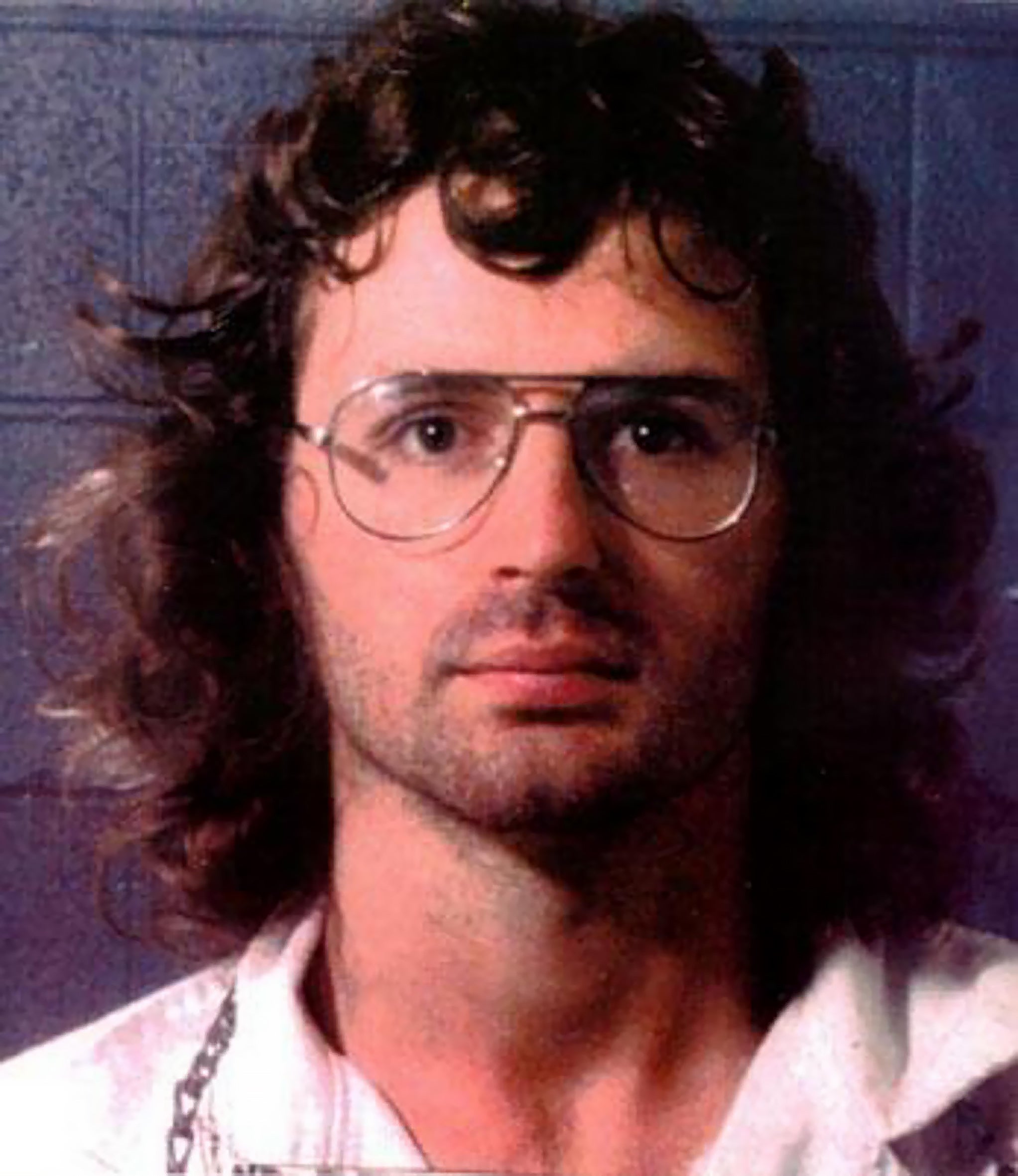
When the British followers arrived in Waco, though, the tone soon began to change. Koresh started to demand that they hand him all their money and urged their families to sell their properties and give him the proceeds.
Matters then became even more pernicious. Koresh introduced a very strict regime called “The New Light”, which, according to Breault, basically meant: “Do whatever I tell you to do.”
The cult leader declared that all marriages were null and void and that all the women in the compound belonged to him. He took as many as 15 wives, some as young as 10 years old. He justified this obscene behaviour by quoting obscure tracts from the scriptures.
Breault admits that he initially turned a blind eye to these heinous activities. “I fell into the trap of saying, ‘Yes, this is terrible. Yes, this is concerning. But if that’s what the Bible says, that’s what we have to do.’ If I could see chapter and verse in the Bible, then I put my feelings aside.”
After a while, though, Breault could no longer overlook Koresh’s criminal actions. “I was aware that he was sleeping with other women. Then Koresh took me aside and he said his favourite wife was the 12-year-old. I didn’t know what to do because he had the blessing of the parents. That was really the start of, ‘OK, I got to think about this now’.”
It was at this point that Breault managed to escape from Mount Carmel and flee to Australia. He tried to alert the authorities and the media, but they just weren’t interested.
In his next extreme move, Koresh began preparing his followers for the end of times. With access to more than 200 unlicensed weapons, including two 50-calibre Browning machine guns, he began training them to be “Mighty Men” and readying them for the impending apocalypse.
Professor Kenneth Newport from Liverpool Hope University, who has written a book about the Branch Davidians, observes: “David Koresh saw everything outside of the complex as Babylon, oppressors of God’s people.
“He identified the modern-day equivalent as American law enforcement agencies. I think they were anticipating a showdown of some sort, which would include them having to defend themselves.”
The Bureau of Alcohol, Tobacco and Firearms finally intervened in 1992 when a package being delivered to the compound broke open to reveal a load of illegal hand grenades.
On 28 February 1993, an attempt by ATF officers to storm the compound failed as the agents were met with an intense barrage of gunfire and lost four men. Six cult members also perished, including Winston Blake, the first Briton to die at Waco.
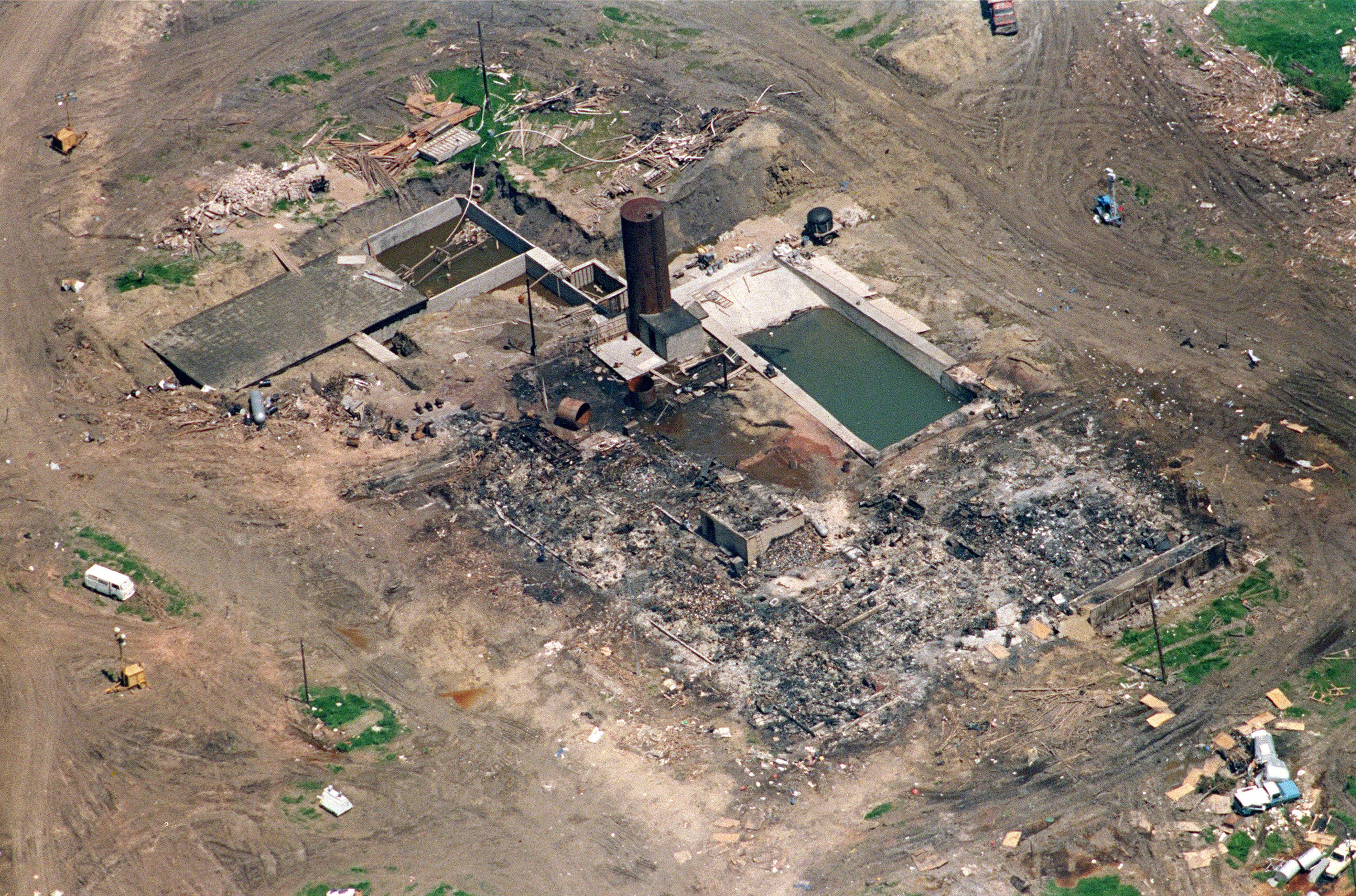
Roland Ballesteros, an ATF special agent who was shot in the thumb by Koresh in the initial skirmishes that day, says the ferocity of the Branch Davidians’ defence took everyone by surprise. “Nobody tells you that a cult is going to be more violent than a prison gang or an organised motorcycle gang. You just don’t think that.”
The FBI took over from the ATF, and Breault was called in as an adviser. “The first words the FBI agent said to me after ‘hello’ were, ‘Who the f*** are these people?’”
A ceasefire was called. But Koresh kept breaking his promise to surrender. After 51 days, on 19 April, the US attorney general Janet Reno was beginning to feel embarrassed by the lack of progress. Finally losing her patience, she ordered a tactical unit led by several tanks to smash into the compound.
Within minutes, the attack had descended into carnage. Recently released secret recordings suggest that Koresh and his associates poured petrol and fire accelerant on piles of straw in order to start three separate conflagrations, which quickly enveloped the compound. The cult leader appeared hell-bent on realising the biblical prophecy of baptism by fire.
There’s not really another place in the US that you could pick that would tap into these deep veins of anti-government hatred
Back here, the families of Branch Davidian members watched in utter dismay as the catastrophe unfolded on TV. Sam, whose wife and four other children had joined Diana in Waco, says: “I was really concerned because my flesh and blood were in the compound. ‘Am I going to see my family again?’ It was like a dream … Your family is the most precious thing you have. Oh my God!”
Sam got his hopes up momentarily “when I heard about some escapes. I just thought my family must have escaped the fire. But when I told my family wasn’t amongst them, I couldn’t believe it was true.” He says that as he contemplated the loss of his wife and five children: “God was crying through my tears.”
The bloodshed Lovelock witnessed that day continues to trouble him. “The kids torment me at times. I still see the kids in my mind. It’s like they’re alive in my mind.”
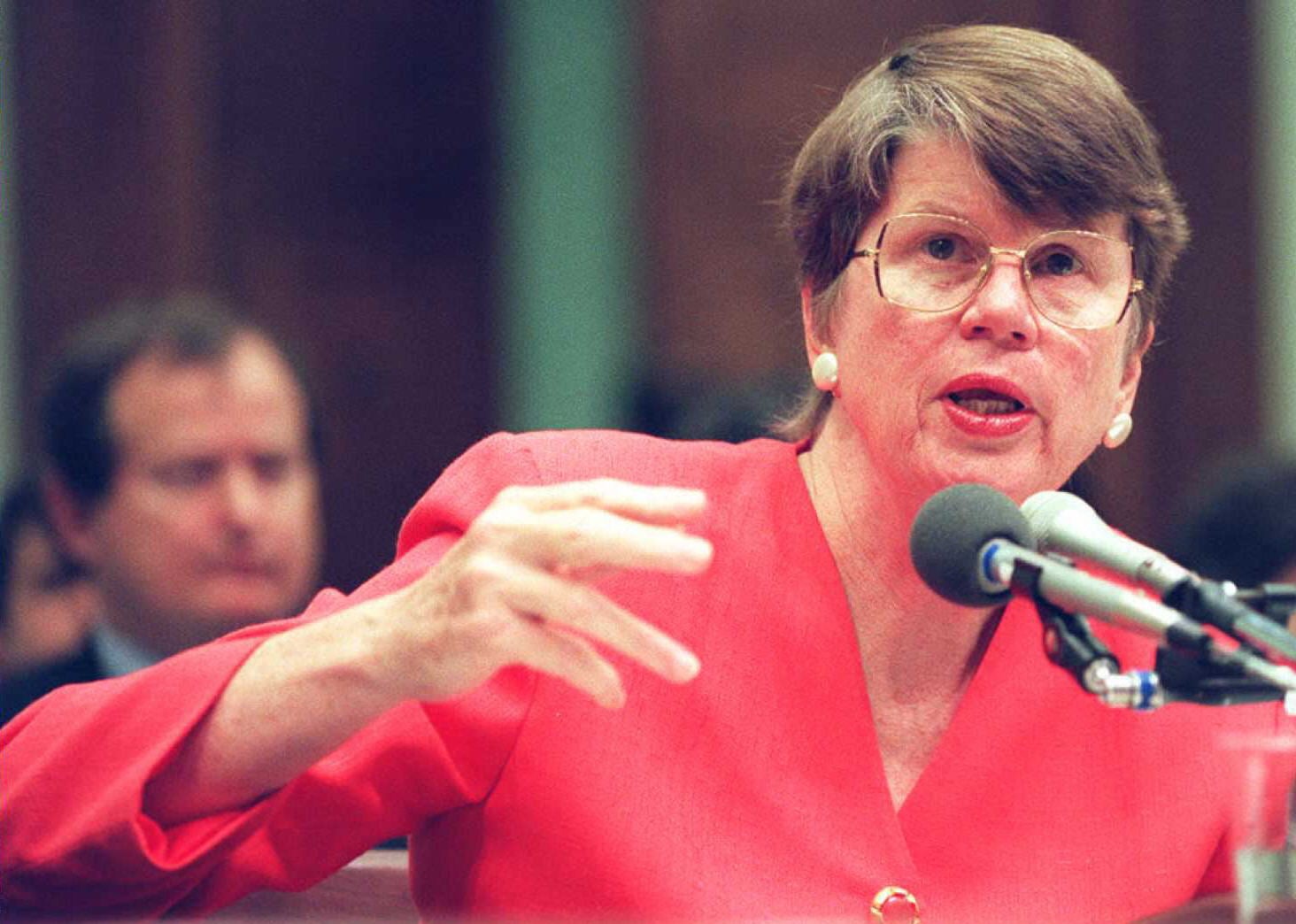
The consequences of Waco still reverberate around the world. Exactly two years after the raid, the domestic terrorist Timothy McVeigh, who visited Mount Carmel in the aftermath of the siege, was inspired by Koresh’s anti-government rants to set off a bomb that killed 168 people at a federal building in Oklahoma City. It is still the deadliest act of domestic terrorism in US history.
Koresh’s anti-authority rhetoric is also mirrored in the words and deeds of more modern figures. ITV News US correspondent Bill Neely, who reported from the siege, says: “Waco was 30 years ago. You might think it’s history, it doesn’t really matter anymore.
“But the aftershocks of Waco are still alive today – especially in the minds of many on the right and the extreme right of American politics, who wanted and still want perhaps to subvert democracy, who want to overturn the election result of 2020, who want to see Donald Trump back in the White House. Waco is still alive.”
Can it really be coincidence that Trump chose to hold a political rally at Waco on the 30th anniversary of the siege? Heidi Beirich, co-founder of the Global Project Against Hate and Extremism, thinks not. “Waco is hugely symbolic on the far right.
All they were seeking was spiritual enlightenment. If there was one thing they were guilty of, it was that they fell for the deceit and lies of an evil man. It was tragedy
“There’s not really another place in the US that you could pick that would tap into these deep veins of anti-government hatred, and I find it hard to believe that Trump doesn’t know that Waco represents all of these things.”
The other conclusion to draw from that baleful day is the danger of idolising charlatans. As Parnell McNamara puts it: “Those people just wanted a sense of belonging. So Koresh would make them feel welcome, make them feel important. But he hoodwinked those people. He was nothing but a two-bit street punk… He was the biggest fraud, the biggest creep that I can think of.”
Sam chips in: “The greatest knowledge is to know the truth, and my experience tells me that David Koresh was a deceiver and a liar.”
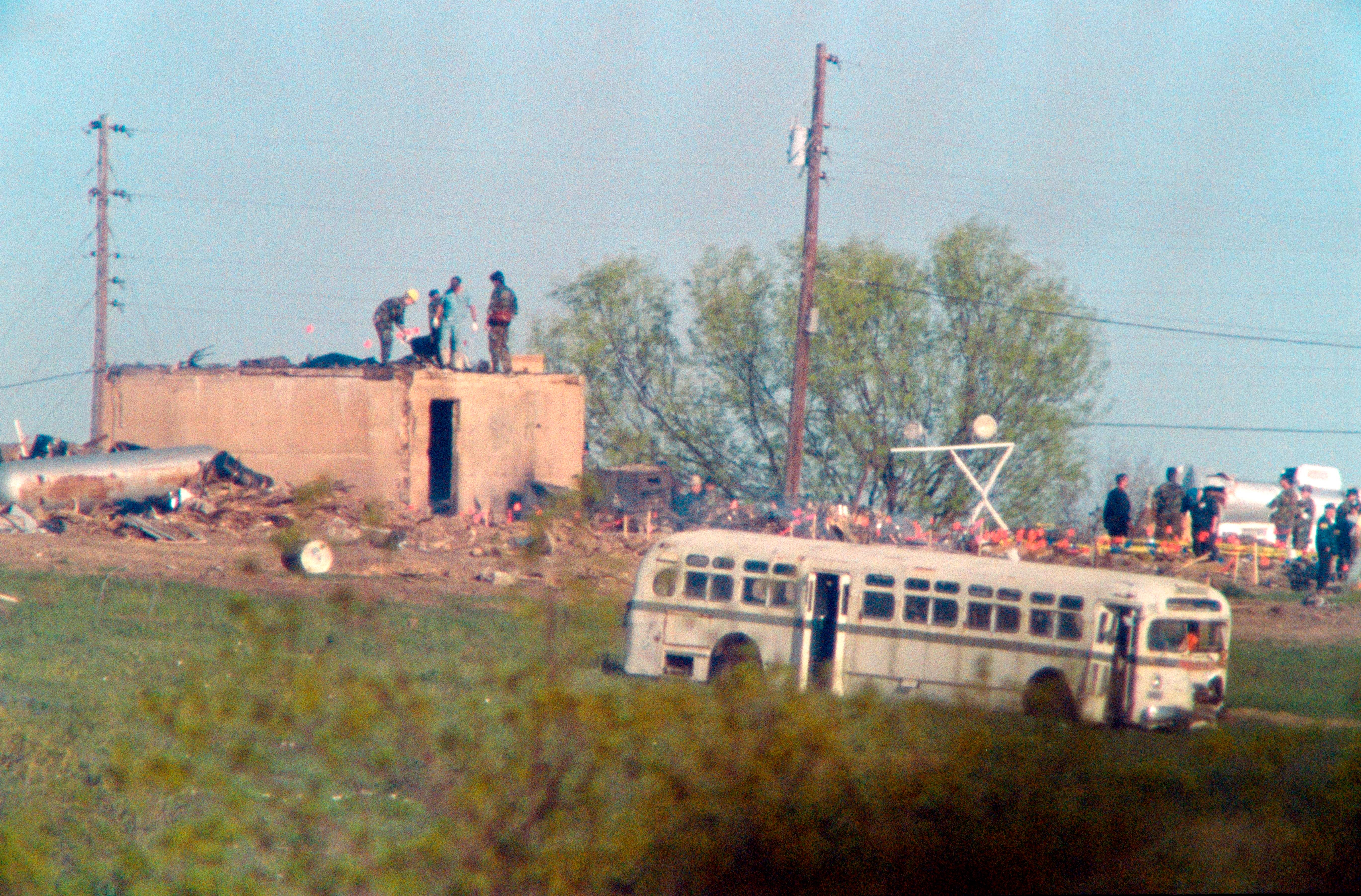
For her part, Savage says: “It’s important to remember that this could so easily happen again. The families want this documentary to act as a warning that there will be false messengers walking among us again. They believe that there will once more be these wolves in sheep’s clothing who will try to tap into our vulnerabilities and exploit people. So they just want lessons to be learnt and hope this tragedy isn’t allowed to happen again.”
But in the end, it is right that we should not focus on Koresh but on his victims, and accord them the dignity they merit, Albert Yates says. “They have been categorised in some areas of the press as being weird, which is quite, quite wrong. They were decent, good, honest people from caring families.
“All they were seeking was spiritual enlightenment. If there was one thing they were guilty of, it was that they fell for the deceit and lies of an evil man. It was tragedy, it was tragedy.”
Savage closes by expressing the hope that her documentary will help remind us of the British victims who have for too long been forgotten. “The families of the Brits who died live this every day. They haven’t forgotten about their loved ones. Their memories are with them. They just want them to be remembered. Their friends and relatives were ordinary people like you or me. They came from good families, and they were loved.
“They weren’t the wackos of Waco.”
‘Waco Untold: The British Stories’ is on ITVX






Join our commenting forum
Join thought-provoking conversations, follow other Independent readers and see their replies
0Comments